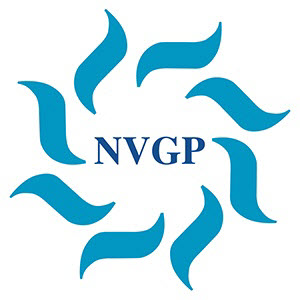Report on a systematic review of the efficancy and clinical effectiveness of group analysis and analytical/dynamic group psychotherapy
Blackmore, C., Tantam, D., Parry, G., and Chambers, E. (2011)
Report on a systematic review of the efficancy and clinical effectiveness of group analysis and analytical/dynamic group psychotherapy. Group Analysis, vol. 45(1) pp 46-69
Verslaggever Monique Leferink op Reinink
Samenvatting
This review assesses the efficancy and clinical effectiveness of group analysis and analytic/dynamic group psychotherapy. Studies and systematic reviews published in English were selected between 2001 and 2008. Randomized controlled trials, cohort studies, ‘before and after’ studies, qualitative studies and systematic reviews were included, studies with other designs were not. 34 primary studies and 19 reviews met the inclusion criteria. The 34 studies included 5 RCT’s, five case controls using a ‘matched’or ‘wait-list’comparison group, 21 observational and one qualitatrive study.
Most reviews included psychodynamic or analytic group therapy amongst other interventions. Only one article specifically adressed psychodynamic group therapy and only one review summarized research in group analytic treatment.
Diagnosis included personality disorder, abusive relationships, schizophrenia, complicated grief and childhood sexual abuse. 22 studies were classed as heterogeneous and 12 studies as homogeneous. 17 studies used group treatment described as ‘psychodynamic’, 4 studies used group treatment as ‘psychoanalytic’ and 9 studies used groupt treatment described as ‘group analysis’.
Outcome predictors were the relationship between patient charateristics or treatment type and outcome . 11 studies examined moderating variables.
The studies consistently report that group psychotherapy is an effective approach, across diverse conditions and settings. Group therapies in general are more effective then wait list or standard care controls. There were no specific benefits of any particular theoretical approach. In addition there were some important effects of age, sex, self-efficacy, psychological mindness and the quality of objectrelations on outcomes. A major challenge for the research team was the lack of clearly defined terminology and key words to decribe analytic/ psychodynamic group psychotherapy. Furthermore the methodological quality of the studies varied, there were a relatively low number of RCT’s and the outcome measures were variable.
Recommendations are: More RCT’s or high quality empirical research would significantly improve the research in group psychotherapy; future research should focus more on the aptitude-treatment interaction, identifying which patients are more likely to respond positively to which kind of group psychotherapy.
Wat betekent dit voor de groepspsychotherapie en nvgp?
Ook in deze systematische review wordt gevonden dat groepspsychotherapie effectief is. Daarbij wordt er géén verschil gevonden in effectiviteit tussen theoretische stromingen. De studies en eerdere reviews die in dit artikel zijn gebruikt zijn zeer heterogeen, evenals de onderzochte populatie en variabelen. Uitkomstpredictoren en moderatoren verschillen en er is slechts een gering aantal aantal RCT’s opgenomen. Specifiek op psychoanalytische/ psychodynamische groepspsychotherapie gerichte onderzoeken bleken schaars, bovendien ontbreekt in de verschillende onderzoeken een duidelijke definiëring van wat analytische/ psychodynamische groepspsychotherapie precies behelst. Daarmee geeft deze weliswaar uitgebreide systematische review helaas weinig uitsluitsel over het effect van analytische/ dynamische groepspsychotherapie.
Meer kwalitatief hoogstaand onderzoek lijkt een vereiste om het effect van psychoanalytische/psychodynamische groepen goed vast te kunnen stellen. Dit is ook noodzakelijk, omdat onderzoek naar het effect van cognitieve gedragstherapie tot nu toe aanzienlijk beduidender is.
Winst lijkt verder vooral ook te behalen in de aanbeveling toekomstig onderzoek te richten op de vraag welke patiënten het meest baat hebben bij welke vorm van groepspsychotherapie.
| Relevantie voor richtlijnen | O O O O O |
| Relevantie voor onderzoek | O O O O O |
| Relevantie voor groepsbehandeling | O O O O O |
| Relevantie voor teamcoaching | O O O O O |
| Relevantie voor groepsdynamicaopleiding | O O O O O |
| Relevantie voor groepstherapieopleiding | O O O O O |
| Relevantie voor KP opleiding/Psychiatrie opleiding | O O O O O |
